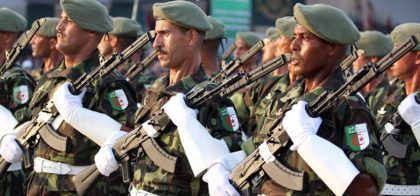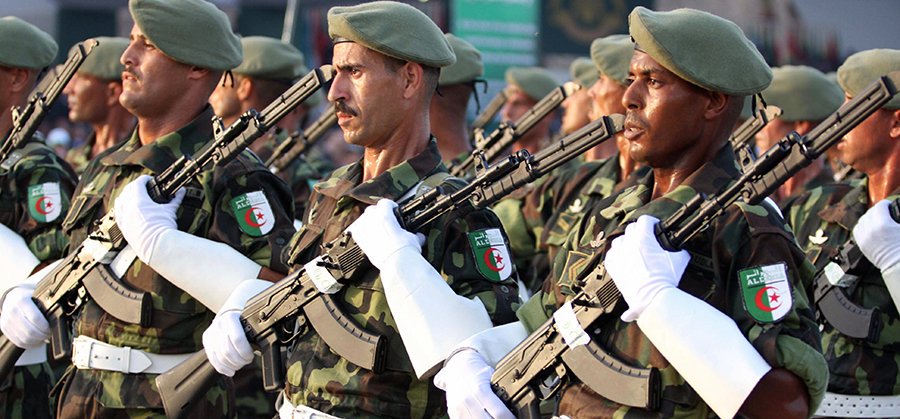 The Algeria-based separatist militia, the Polisario, has threatened to fire at the UN peacekeeping mission in the Sahara, MINURSO, if it patrols the demilitarized buffer strip as part of monitoring the 1991 cease-fire agreement.
The Algeria-based separatist militia, the Polisario, has threatened to fire at the UN peacekeeping mission in the Sahara, MINURSO, if it patrols the demilitarized buffer strip as part of monitoring the 1991 cease-fire agreement.
UN Spokesperson told the press in New York that the MINURSO should carry out its mission fully and enjoy unhindered freedom of movement in the Sahara, making it clear that the Polisario will be held accountable for hindering the UN mission.
Tension started to build in the area in tandem with Morocco’s inroads in Africa where support for the Kingdom’s sovereignty is gaining ground.
After Morocco’s unilateral withdrawal from the Guerguarat area beyond the security wall on the borders with Mauritania in response to the UN Chief’s call, the Polisario in a defiant act moved in to set up checkpoints forcing Moroccan drivers to remove from their vehicles signs such as Moroccan maps or registration plates and threatening to fire on those who refuse to abide.
MINURSO officials warned last month that the presence of the Polisario militiamen in the area represents an act of aggression and obstructs the normal flow of commercial traffic, which may trigger a military response from Morocco.
The Polisario, acting upon directives from its mentors in Algiers, sees in igniting tension in the area a chance to galvanize support amid its disenchanted supporters in Tindouf camps and Algiers.
Algeria through manipulating the Polisario looks with envy at Morocco’s breakthrough in Africa and its endeavor for regional integration within the Economic West African Community, the ECOWAS. Fueling tension in the southernmost tip of the Sahara is meant to block Morocco from connecting with its African depth.
By pulling the strings of the Polisario to provoke Morocco into a military response, the Algerian military junta is also seeking to divert attention from its crippling economic and social crisis that bears the seeds of an imminent implosion.
Avid of the conspiracy theory, the autocratic regime in Algiers may try to spark a war in the Sahara using the Polisario to unite their disentangling domestic front.
However, their main assumption is that the war may be a limited low-intensity war where the Polisario may re-exercise the guerilla hit-and-run tactics by attacking Moroccan territory and seeking sanctuary in Algeria. In the 1990s, Morocco under Hassan II abstained from hot pursuits to hit the Poliario in its Algerian rear base. Today, it is unlikely that the Royal Armed Forces may follow suit in case an armed conflict sparks. The spectre of a generalized war between Morocco and Algeria remains on the table if war resumes.
Having recently received military equipment from the Algerian regime, the Polisario is becoming more than ever a tool used by Algiers to destabilize Morocco and sap all efforts seeking to find a lasting, political and mutually acceptable solution based on the Moroccan autonomy initiative.
Now that it has withdrawn its troops beyond its security walls, Morocco has scored a major point and evidenced its sincere willingness to safeguard the region’s peace and security.
Meanwhile, the hostile acts of the Polisario and its paymaster Algeria represent an utter disregard for the cease-fire agreement bearing the seeds of tension.
Self-defense is guaranteed by the UN charter and any slight mistake by the Polisario would trigger a commensurate response. By retreating from Guerguarat, Morocco showed that the Polisario and its paymasters in Algiers are the parties kindling chaos in the region.
So far, Morocco has shown restraint while safeguarding its diplomatic and military achievements. Its withdrawal from the Guerguarat took the Polisario and Algeria by surprise and held them accountable for any possible return to hostilities in the region. In the meanwhile, Morocco adopts a wait and see stand waiting for the Algerian regime to crumble from the inside.



